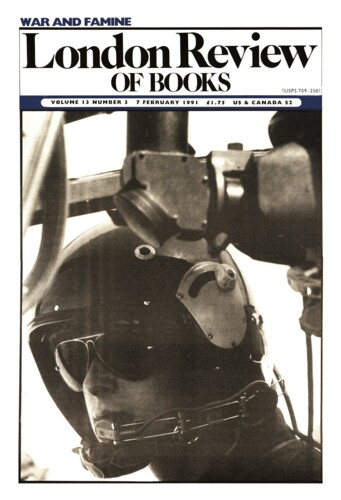Soviet Revisions
Oleg Gordievsky, 7 February 1991
Dmitri Volkogonov, General of the Soviet Army, head of the Institute of Military History and admirer of Gorbachev, has produced the most authoritative biography of Stalin we have read so far. There is no doubt that he had many advantages over Western biographers of Stalin, of whose work he seems to have made little use. As an official historian and a general, he had access to unique archival material; and he has based his work primarily on documents held in the Soviet archives of the Ministry of Defence, the Institute of Marxism-Leninism (for the history of the Communist Party) and the Ministry of Foreign Affairs. There are therefore many new details, insights and extrapolations in his book. What is remarkable, however, is that, even at the height of glasnost, an influential Soviet historian was not given access to CPSU Central Committee records, which contain all the most important material for any understanding of Soviet history pertaining to the Politburo, the Party Secretariat and the Central Committee. It goes without saying that he had no access to KGB archives. Yet if Stalin’s motives, decisions and actions between 1928 and 1952 are to be understood, the details of his work with the secret political police – his eyes, ears and armoury – is crucial.’

